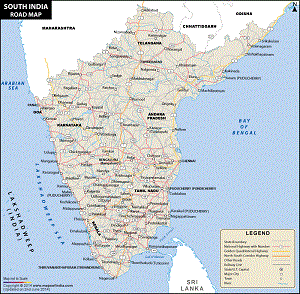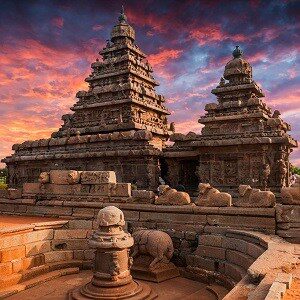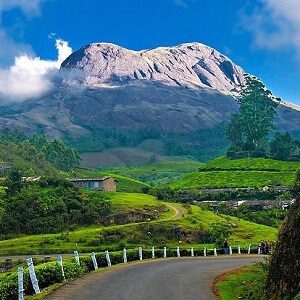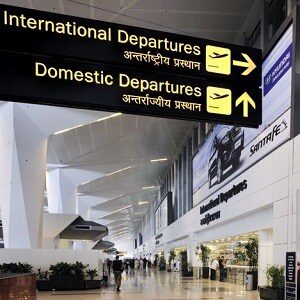"Southern Splendour"
"South India Motorcycle Tour"
A wedge-shaped peninsula tapering into the Indian Ocean, South India is the subcontinent’s tropical heartland. Within its folds of thousands of kilometres of plunging coastline, it contains lush forests, soaked paddy fields, shimmering lagoons, sporadic fort-topped outcrops – a continually dynamic scenery burnished by a double-barreled monsoon. Fiery sunsets and inland waterways of Kerala; incense-soaked temples and cool hill-station retreats of Tamil Nadu; spice gardens, tea plantations, and tropical forests in the Western Ghats. The multi-faceted charms of the south unravel subtly, just like the intricate spices of its cuisines.
Tour Summary
-
14 Days, 13 Nights
-
Distance: 1900 Km
-
Riding Days: 11
-
Level: Moderate
Tour Summary
-
14 Days, 13 Nights
-
Distance: 1900 Km
-
Riding Days: 11
-
Level: Moderate
"South India Motorcycle Tour"
A wedge-shaped peninsula tapering into the Indian Ocean, South India is the subcontinent’s tropical heartland. Within its folds of thousands of kilometres of plunging coastline, it contains lush forests, soaked paddy fields, shimmering lagoons, sporadic fort-topped outcrops – a continually dynamic scenery burnished by a double-barreled monsoon. Fiery sunsets and inland waterways of Kerala; incense-soaked temples and cool hill-station retreats of Tamil Nadu; spice gardens, tea plantations, and tropical forests in the Western Ghats. The multi-faceted charms of the south unravel subtly, just like the intricate spices of its cuisines.
About South India
History
The history of southern India covers a span of over four thousand years during which the region saw the rise and fall of a number of dynasties and empires. In the early 14th century, Vijayanagara empire covered most of southern India and acted as a bulwark against Mughal expansion into the south. When the European powers arrived during the 16th and 18th century CE, the southern kingdoms, most notably Tipu Sultan’s Kingdom of Mysore, resisted the new threats, and many parts eventually succumbed to British occupation. The British created the Madras Presidency which acted as an administrative centre for the rest of South India. After Indian independence, South India was divided into the states of Tamil Nadu, Andhra Pradesh, Karnataka, and Kerala.
Terrain
South India is a peninsula in the shape of a vast inverted triangle, bounded on the west by the Arabian Sea, on the east by the Bay of Bengal, and on the north by the Vindhya and Satpura ranges. The Western Ghats, along the western coast, mark another boundary of the plateau. The Western Ghats continue south and terminate at the Nilgiri mountains which run in a crescent encompassing the Palakkad and Wayanad hills, extending on to the relatively low-lying hills of the Eastern Ghats.
The Tirupati and Anaimalai hills form part of this range. No major elevations border the plateau to the east, and it slopes gently from the Western Ghats to the eastern coast.
Roads
 The iconic Eastern Coastal Road from Mammallapuram and Pondicherry, vertigo-inducing 70 hairpin bends on the way up to Kolli Hills, national highway passing through Bandipur Tiger Reserve, mist-covered roads through the coffee and pepper plantations in Coorg. From scenic laid-back coastal roads through lush-green rice fields to remote ferry crossings, South India’s roads are a rider’s paradise.
The iconic Eastern Coastal Road from Mammallapuram and Pondicherry, vertigo-inducing 70 hairpin bends on the way up to Kolli Hills, national highway passing through Bandipur Tiger Reserve, mist-covered roads through the coffee and pepper plantations in Coorg. From scenic laid-back coastal roads through lush-green rice fields to remote ferry crossings, South India’s roads are a rider’s paradise.
Climate
The climate in Southern India experiences only slight seasonal variations. Temperature is between 23 to 32-degree Celsius and humidity remains relatively high all year round. Rainfall is common at any time of the year. From March to June, temperatures can soar above average, making the hot season unbearable. From May to September, monsoon rains sweep across the region with daily torrential downpours and a high possibility of flooding, making travel difficult. The coastal regions can suffer from fierce tropical storms that cause high winds, intense rain, and possible tidal waves. October to February is the best time to travel when the weather is pleasant with minimal rainfall in most places.
About South India

History
The history of southern India covers a span of over four thousand years during which the region saw the rise and fall of a number of dynasties and empires. In the early 14th century, Vijayanagara empire covered most of southern India and acted as a bulwark against Mughal expansion into the south. When the European powers arrived during the 16th and 18th century CE, the southern kingdoms, most notably Tipu Sultan’s Kingdom of Mysore, resisted the new threats, and many parts eventually succumbed to British occupation. The British created the Madras Presidency which acted as an administrative centre for the rest of South India. After Indian independence, South India was divided into the states of Tamil Nadu, Andhra Pradesh, Karnataka, and Kerala.
Terrain
South India is a peninsula in the shape of a vast inverted triangle, bounded on the west by the Arabian Sea, on the east by the Bay of Bengal, and on the north by the Vindhya and Satpura ranges. The Western Ghats, along the western coast, mark another boundary of the plateau. The Western Ghats continue south and terminate at the Nilgiri mountains which run in a crescent encompassing the Palakkad and Wayanad hills, extending on to the relatively low-lying hills of the Eastern Ghats. The Tirupati and Anaimalai hills form part of this range. No major elevations border the plateau to the east, and it slopes gently from the Western Ghats to the eastern coast.


Roads
 The iconic Eastern Coastal Road from Mammallapuram and Pondicherry, vertigo-inducing 70 hairpin bends on the way up to Kolli Hills, national highway passing through Bandipur Tiger Reserve, mist-covered roads through the coffee and pepper plantations in Coorg. From scenic laid-back coastal roads through lush-green rice fields to remote ferry crossings, South India’s roads are a rider’s paradise.
The iconic Eastern Coastal Road from Mammallapuram and Pondicherry, vertigo-inducing 70 hairpin bends on the way up to Kolli Hills, national highway passing through Bandipur Tiger Reserve, mist-covered roads through the coffee and pepper plantations in Coorg. From scenic laid-back coastal roads through lush-green rice fields to remote ferry crossings, South India’s roads are a rider’s paradise.
Climate
The climate in Southern India experiences only slight seasonal variations. Temperature is between 23 to 32-degree Celsius and humidity remains relatively high all year round. Rainfall is common at any time of the year. From March to June, temperatures can soar above average, making the hot season unbearable. From May to September, monsoon rains sweep across the region with daily torrential downpours and a high possibility of flooding, making travel difficult. The coastal regions can suffer from fierce tropical storms that cause high winds, intense rain, and possible tidal waves. October to February is the best time to travel when the weather is pleasant with minimal rainfall in most places.

ROYAL ENFIELD RIDER MANIA
Tour Route Map
Tour Itinerary

The beach town’s magnificent, World Heritage–listed temples and carvings inflame the imagination, especially at sunset. The buzzing, growing surf scene is another attraction.

In this former French colony, ‘lifestyle’ shops sell a seductive vision of the French-subcontinental aesthetic while the famous Sri Aurobindo Ashram draws large numbers of spiritually minded visitors.

The loud long-stroke-thump of a Royal Enfield thundering up the vertigo-inducing climb up this hill with seventy hair-pin bends. Need we say more!! Pure grin factor.

Kodaikanal is a hill town in the southern Indian state of Tamil Nadu, set in an area of granite cliffs, forested valleys, lakes, waterfalls and grassy hills, at 2,000 meters above sea level.

This wildlife sanctuary offers the unique opportunity to watch and photograph wild elephants from close quarters. In Periyar, one can enjoy cruise rides on the lake as well as elephant rides.

The rolling hills around Munnar, South India's largest tea-growing region, are carpeted in emerald-green tea plantations, contoured, clipped, and sculpted like ornamental hedges.

'Queen of Hill Stations' mixes Indian bustle and Hindu temples with beautiful gardens and charming Raj-era bungalows. The journey on the celebrated miniature train is romantic and the scenery stunning.

Kabini is popular for its tiger territories and connects Nagarhole and Bandipur National Parks. It is a perfect getaway for wildlife enthusiasts and adventure seekers alike.

At an altitude of 1525 meters in Western Ghats, misty hills, lush forests, tea and coffee plantations, orange groves, undulating streets, and breathtaking views make Coorg an unforgettable destination.

A sleepy coastal town sandwiched between the verdant mountains of the western ghats on the east and the vast, tranquil Arabian Sea on the west.

Gokarna is a small temple town on the western coast, known for its beaches. Some of the famous beaches are: Kudle Beach, Om Beach, and Half Moon Beach.

One of India's top tourist spots, Goa is a vibrant fusion of Indian and Portuguese cultures and a heady concoction of sea, sand, and sun.

Goa is the venue for the largest gathering of Royal Enfield riders in the world every year at the Rider Mania. Custom bike shows, competitions, music, food, sun and sand all come together in perfect harmony.

Back home safely after a fulfilling adventure.
Tour Information
- Guided tour as per itinerary.
- Experienced tour guides.
- Road maps and travel information.
- All hotel accommodation and meals.
- All transfers including Airport transfers, sightseeing spots and during the ride.
- All motorcycle hire charges for the guided tour duration.
- Fuel.
- Third party insurance for the motorcycles.
- All sightseeing spot entry tickets and guide charges (excluding camera charges).
- Road and bridge tolls.
- Skilled motorcycle mechanic.
- Support vehicle for carrying luggage, spares, medical kit and other essentials (for groups of six or more riders).
- Tour T-shirt and Hoodie.
- Goods and Services Tax.
- Adequate travel, medical and accidental insurance of the riders.
- Air travel and visas.
- Alcoholic and non-alcoholic beverages.
- Tips and laundry.
- Repair of damages to the motorcycle caused by the riders.
- Personal riding and safety gear.
- All telephone/mobile services.
- Anything not mentioned in the Inclusions section.
Signed copies of:
- Insurance & Medical Form
- Liability Waiver Form
Original and 2 photocopies each, of following:
- Driving License
- International Driving Permit
- Travel Insurance
- Passport
- Visa
Passport sized photographs (Four)
- Riding Jacket
- Riding Pants
- Motorcycle Boots
- Helmet : Full face (essential)
- Riding Gloves
- Kidney Belt
- Hydration Pack
- Water Resistant Backpack
- Goggles/Sunglasses
- Snood/Buff Scarf
Essentials:
- Sun Block
- Mosquito Repellent
- Hand Sanitizer
- Insulated Flask
- Lip Balm
- Sun Hat/Cap
- Personal Medication
- Basic First Aid Kit
Special Offers
We are offering limited period discounts. Contact us to find out if you are eligible.


